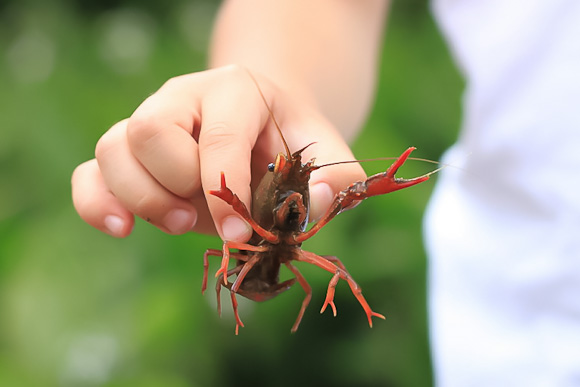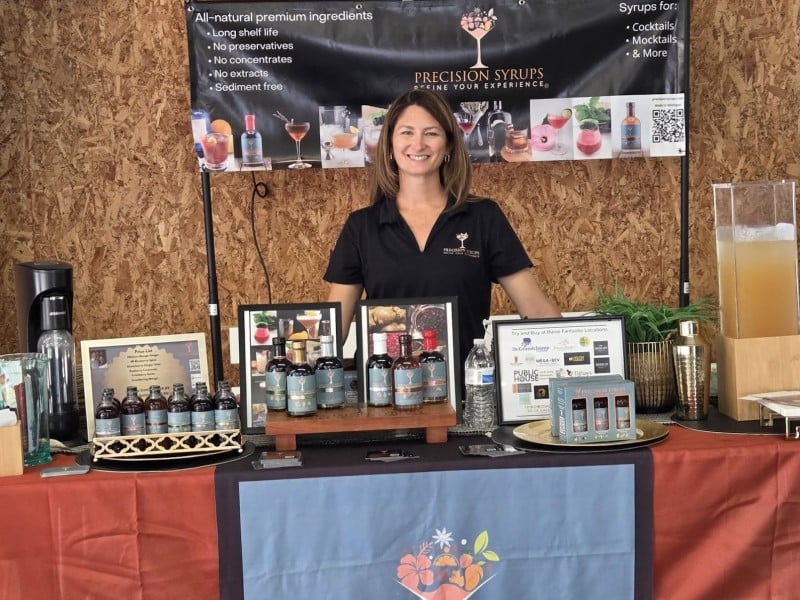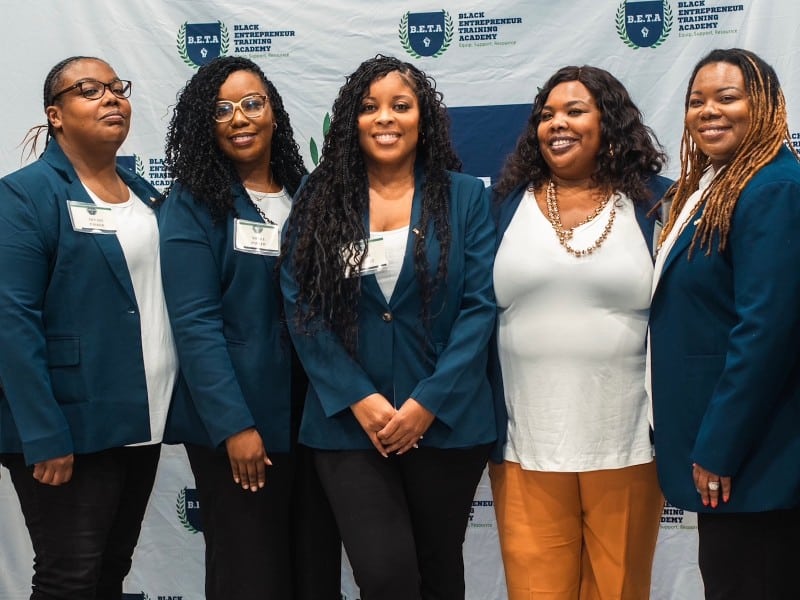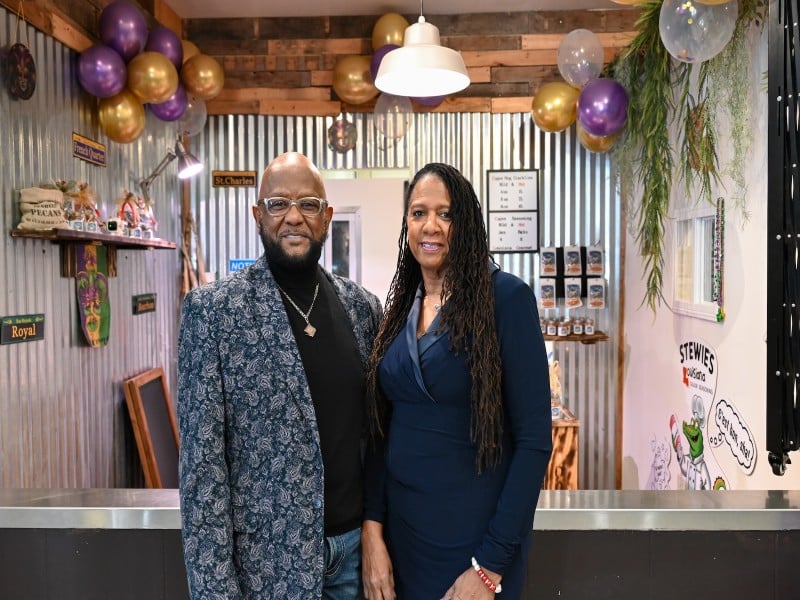Fish, flies, and greens drive AQ Produce

It turns out that the business of raising fish can be hard on the environment. The founders of AQ Produce have looked long and hard into what it takes to keep it clean.
At Innovation Day, Carlos Daniels was at the AQ Produce booth explaining how black soldier flies, crayfish, and spirulina all come together in their plan to mimic a biological ecosystem.
The business that is currently in the research and development phase would include both an aquaponics and hydroponics operations. Both fish and produce, in the form of leafy greens, are to be grown by AQ Produce. The company ultimately would sell compost, fish, and produce.
AQ Produce is working to create a business that has a low impact on the environment, that reconnects people with where their food comes from, and that is profitable. This triple-bottom line serves the community, the economy, and the environment.
They also are creating a system that they believe can be replicated in places where the people are poor. So the system is being developed using a 55 gallon drum that could be found in even in economically distressed areas.
Daniels says he has been researching the system for two years, though as an organizational communications major it has nothing to do with his field of study. The deep knowledge he’s gained in the process bubbles over as he discusses the plans for AQ Produce.
During those two years some of the information he and his partners have found is that crayfish can be used to get rid of fish waste. They have decided to use females that can reproduce through parthenogenesis–no males are required. Males are most likely to cannibalize young crayfish.
Although nothing is set in stone at this early phase of the business, as the business becomes profitable one goal of the team is for money to go back into the community. Daniels says town hall meetings to determine how best to spend the money could be the way they make that decision.
For now, AQ Produce, the AQ stands for Always Quality, will continue its research at WMU’s Office of Sustainability, where the team formed. And the team will be seeking funds to continue its research. Current plans are to use the Finch greenhouse located next to Wood Hall. This location is a research greenhouse with controlled conditions. Team members also are working at Starting Gate, WMU’s business accelerator.
“Our first pilot would be the Gibbs House property although this will be a proof of concept and not intended to be for profit,” Daniels says. “At that point we will transition to a property we have located out in Bellevue, Michigan for small-scale commercial operation.”
After that they hope to scale up to a larger property and target markets in dense urban areas such as Detroit and Grand Rapids.
Other members of the AQ Produce team are Kyle Simpson, a physics and electrical engineering student, and Ramon Roberts, in civil engineering.
Writer: Kathy Jennings, Second Wave Media
Source: Innovation Day at Western Michigan University














